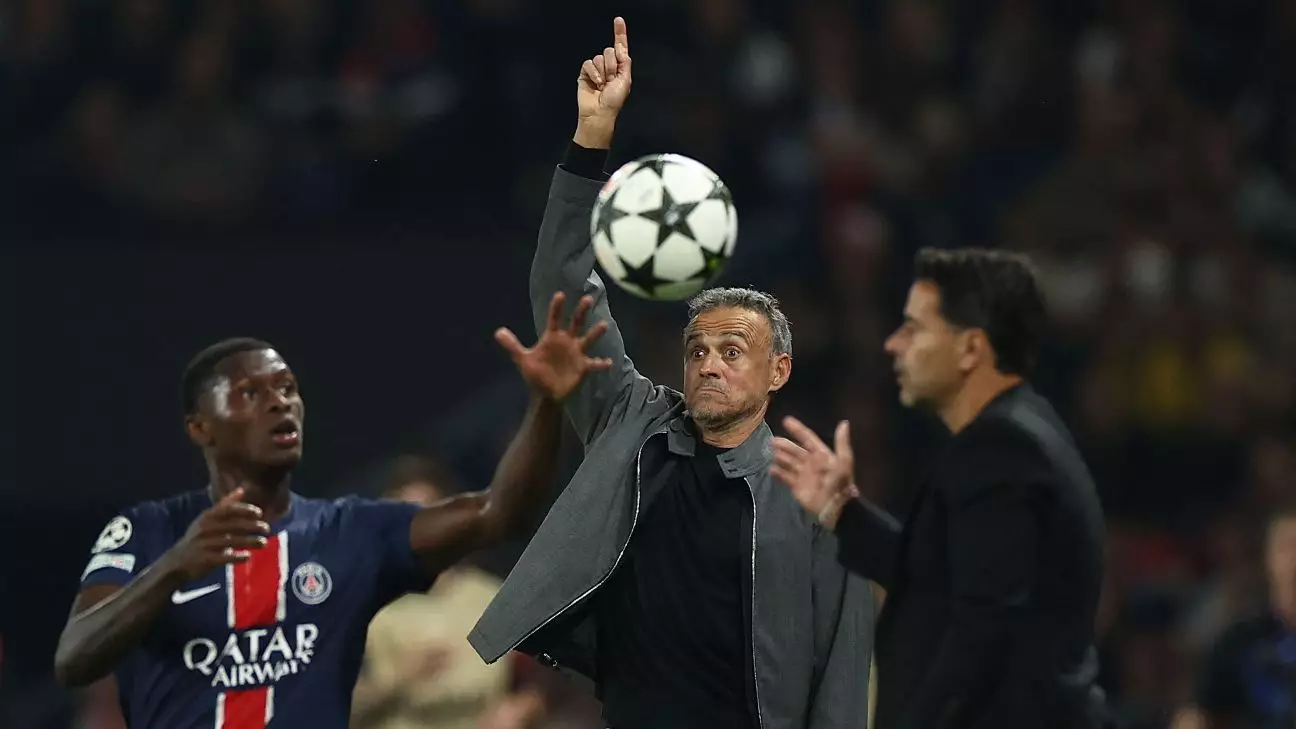The opening match of the modified UEFA Champions League brought excitement and tension for Paris Saint-Germain (PSG), culminating in a narrow 1-0 victory over Girona. PSG’s manager, Luis Enrique, addressed the complexities of the competition’s unprecedented format, which has introduced a host of uncertainties that complicate any early judgments about his team’s performance. As the European football landscape evolves, the implications of these changes are profound not only for PSG but for all participating clubs.
In this revamped Champions League season, each of the 36 teams will compete in eight matches against eight different opponents. The structure aims to level competition but introduces questions that leave coaches and analysts scratching their heads. As Enrique noted, “Winning a match or any title is difficult, but we don’t know the dimension of this competition with this format.” This statement reflects a broader concern: the lack of clarity regarding how many points will suffice for advancing to the next stages of the tournament.
For PSG, who have consistently been one of the top teams in Europe, the importance of results should not be underestimated. The adjustment period necessitated by the league phase means teams will have to adapt quickly, all while measuring their success against not only their performance but also the schedules faced by their rivals. Despite PSG’s dominance during much of the opening match, the eeriness of the format leaves lingering doubts about the effectiveness of a single win in a much larger, more complex race.
In retrospect, though PSG exhibited substantial control during the match, the persistent threat posed by Girona created moments of anxiety for fans and players alike. The match’s turning point came in the dying minutes when a shot from Nuno Mendes slipped past Girona’s goalkeeper Paulo Gazzaniga, resigning the visitors to defeat. Gazzaniga’s blunder contrasted sharply with several impressive saves he made earlier in the game, showcasing the unpredictable nature of football.
Enrique’s reflections after the match highlighted the challenges faced on the pitch: “At half-time, we said that if we didn’t press, we were going to suffer. We had to win, and it was very difficult.” This statement can be seen as a microcosm of the balance between control and vulnerability that defines modern football. A team can dominate possession and opportunities yet still find themselves at the mercy of a crucial mistake or a lapse in concentration.
Another concern for PSG emerged with the injury to Marco Asensio, who left the match before halftime with a twinge. The potential impact of this setback on the season cannot be overstated. Though Enrique expresses confidence in the depth of his squad, professional football continually tests a team’s resilience in the face of adversity. “This is professional football, and we have a very good squad,” Luis Enrique reassured, but injuries at critical junctures can shape a team’s trajectory.
Conversely, Girona’s manager Michel provided a silver lining to the loss, asserting pride in his team’s effort despite the defeat. His acknowledgment of Gazzaniga’s previous heroics before the fatal error serves as a testament to Girona’s resolve and their ability to compete against powerhouse teams. Michel’s perspective underscores the notion that in football, even amidst setbacks, teams can derive confidence and motivation from strong performances.
As PSG prepares for an away clash against Reims and Girona gears up for a match against Valencia, both teams face the challenges of maintaining momentum amid a formidable season. For PSG, overcoming new challenges while seizing control of their Champions League journey will be paramount. The evolving dynamics of European football present a unique test that extends beyond the pitch.
While PSG’s opening night triumph brought celebration, it is imperative to understand the multifaceted nature of the new Champions League format. With many questions on the horizon and a fiercely competitive atmosphere, the journey ahead will require tactical prowess, strategic depth, and perhaps a bit of luck. As the season unfolds, both teams will need to remain resilient and adapt swiftly to not only survive but thrive in Europe’s elite footballing landscape.
